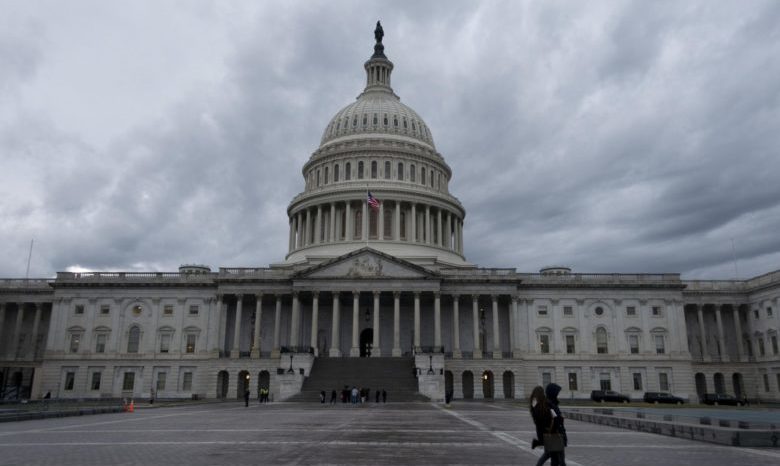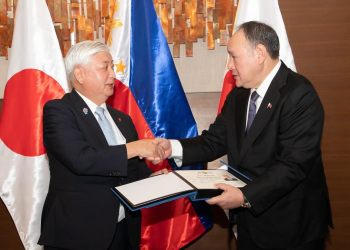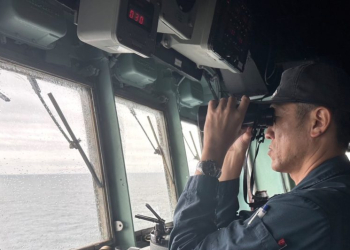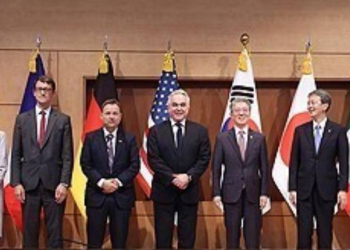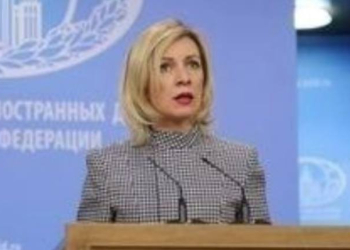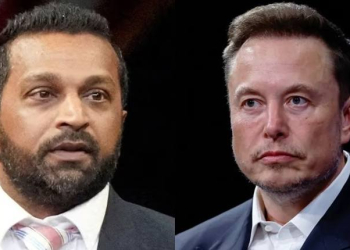New York: The Senate House Committee probing Jan 6 riots on Capitol Hill has virtually scored a major victory in wrapping a commitment from former White House counsel to ex-President Donald Trump, Pat A. Cipollone to make a statement on what actually happened on that fateful day.
The committee has virtually achieved “Mission Impossible” by securing a deal with Cipollone who had previously pushed back all efforts of the ex-President to overturn the 2020 election result that declared Joe Biden as President. He was in the West Wing, where all key white house advisors and presidential staff work, and was witness to the ex-presidents’ actions on January 6, 2021.
Cipollone, who served as the White House counsel under Trump, was a witness to key moments during Trump’s efforts to retain power, but was unwilling to appear before the committee so far.
In a new twist that indicates a change of mind after the explosive testimony of Cassidy Hutchinson, a former aide to Trump’s Chief of Staff, Mark Meadows, he has reportedly reached a deal to be interviewed by Friday, according to people familiar with the inquiry.
The agreement is a major breakthrough for the panel, which has pressed for weeks for Cipollone to cooperate – and issued a subpoena to him last week – believing he could provide crucial testimony.
Cipollone is a key witness to pivotal moments in Trump’s push to invalidate the election results, including discussions about seizing voting machines and sending false letters to state officials about election fraud. He was also in the West Wing on January 6, 2021, as Trump reacted to the violence at the Capitol, when his supporters attacked the building in his name, the New York Times reported.
People close to Cipollone have repeatedly claimed that he could take refuge under executive privilege and attorney-client privilege and inhibit his testimony before the panel. But committee negotiators pressed to hear from Cipollone and Patrick F. Philbin, who was his deputy in the White House.
According to the paper, Cipollone will sit for a videotaped, transcribed interview, according to a person familiar with the discussions. He is not expected to testify publicly.
The panel’s motivation to get Cipollone to testify gained much traction after the devastating testimony last week of Hutchinson, who had recounted in graphic detail conversations with Cipollone in which she said the counsel had expressed deep concern about the actions of Trump and Meadows.
Some allies of Trump reportedly have privately tried to cast doubt on parts of Hutchinson’s testimony, which was the committee’s most explosive to date.
Trump has tried to invoke executive privilege – a President’s power to withhold the release of certain confidential communications with his advisers – to prevent his former aides from cooperating with the investigation. In April, Cipollone and Philbin both appeared for informal interviews with the panel on a limited set of topics, according to an agreement reached by their representatives and representatives for Trump.
The agreement, according to an email reviewed by The New York Times, allowed discussions of a meeting with Jeffrey Clark, a Justice Department official who tried to help Trump cling to power, Trump’s interactions with John Eastman, the conservative lawyer who drafted a legal strategy for overturning the election; any interactions with members of Congress, and Cipollone’s recollections of the events of January 6.
The agreement claimed the two men could not discuss conversations they or others had with Trump, other than one discussion in the Oval Office with Clark in a pivotal meeting on January 3, 2021. However, both were permitted to discuss the timeline of where they were, with whom they met and conversations they had on January 6. If those conditions hold for Cipollone’s forthcoming testimony, they would probably reference conversations such as the ones he may have had with Hutchinson or other officials that day.
Hutchinson told the panel that she recalled that on January 6, Cipollone had objected to suggestions that Trump join a crowd at the Capitol that was pressing to overturn the results of the election. “We’re going to get charged with every crime imaginable,” she said, as per the New York Times report.
People familiar with the White House counsel’s schedule on January 6, 2021, say he arrived late to the White House, although it was unclear precisely when.
According to Hutchinson, Cipollone urged Meadows to do more to persuade Trump to call off the rioters. She also told investigators that she heard lawyers from the White House Counsel’s Office say a plan to put forward pro-Trump electors in states that Biden won was not “legally sound”.
Members of the House committee had hoped that Cipollone would testify publicly at a previous hearing, but he declined, presumably citing executive privilege. They then took their case public. From the hearing room dais, Representative Liz Cheney, Republican of Wyoming, singled out the former White House counsel by name, saying: “Our committee is certain that Donald Trump does not want Cipollone to testify here. But we think the American people deserve to hear from Cipollone personally.”
Making a case against Trump, the committee is laying out evidence that could allow prosecutors to indict former President, though the path to a criminal trial is uncertain.
The main factors to emerge from the hearings are:
An unsettling narrative. During the first hearing, the committee described in vivid detail what it characterized as an attempted coup orchestrated by the outgoing President that culminated in the assault on the Capitol. At the heart of the gripping story were three main players: Trump, the Proud Boys and a Capitol Police officer.
Creating election lies. In its second hearing, the panel showed how Trump ignored aides and advisers as he declared victory prematurely and relentlessly pressed claims of fraud, he was told were wrong. “He’s become detached from reality if he really believes this stuff,” William P. Barr, the former Attorney General, said of Trump during a videotaped interview.
Pressuring Pence. Trump continued pressuring Vice President Mike Pence to go along with a plan to overturn his loss even after he was told it was illegal, according to testimony laid out by the panel during the third hearing. The committee showed how Trump’s actions led his supporters to storm the Capitol, sending Pence fleeing for his life.
Fake elector plan. The committee used its fourth hearing to detail how Trump was personally involved in a scheme to put forward fake electors. The panel also presented fresh details on how he leaned on state officials to invalidate his defeat, opening them up to violent threats when they refused.
Strong arming the Justice Department. During the fifth hearing, the panel explored Trump’s wide-ranging and relentless scheme to misuse the Justice Department to keep himself in power. The panel also presented evidence that at least half a dozen Republican members of Congress sought preemptive pardons.
The surprise hearing. Hutchinson’s testimony came during the panel’s sixth session, saying that the President knew the crowd on January 6 was armed, but wanted to loosen security. She also painted Meadows as disengaged and unwilling to act as rioters approached the Capitol.
Any damaging account from Cipollone of Trump’s post election actions would be a significant change of circumstance from the President’s first impeachment trial, when Cipollone was his chief defender. During the first impeachment, he accused Representative Adam B. Schiff, the California Democrat who served as a prosecutor in that trial and now sits on the Jan 6 committee, of making false allegations against Trump.
A year later, as the President pressed on with plans to try to overturn his defeat, Cipollone and other White House lawyers repeatedly threatened to resign if Trump went forward with some of the more extreme proposals, ultimately persuading him to back off. Jared Kushner, Trump’s son-in-law and a former White House adviser, told the panel that Cipollone’s threats of resignation were frequent, implying that he did not take seriously his concerns and those of other members of the counsel’s office about the gravity of Trump’s plans.
Both the committee’s chair Bennie Thompson, Democrat from Mississippi, and vice chair, Cheney, had subpoenaed Cipollone to testify as to what happened on that fateful day.
(IANS)



